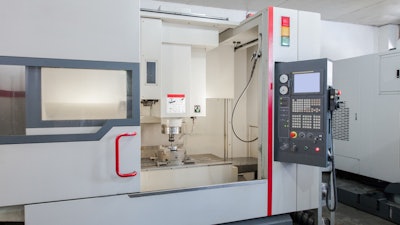
The struggle among manufacturers to fill open jobs is likely to continue because of the shrinking labor pool and growing need for workers with high-tech skills.
Those are conclusions in a report this month from the National Association of Manufacturers; the NAM is a trade group for manufacturers including thousands of small businesses.
The report written by NAM Chief Economist Chad Moutray noted that in a survey in March, manufacturers said their inability to attract and retain talent was their biggest concern, as it was for the previous two and a-half years. A quarter of those surveyed said they've had to turn down new business opportunities because they didn't have the staffers they needed to fulfill the contracts.
There were 477,000 job openings in manufacturing companies in February, up from 436,000 a year earlier, according to the Labor Department. That represented nearly 7.5% of the total number of openings in the private sector. It was down moderately from the more than half a million openings last August that Moutray cited in his report.
The greatest number of job openings was in some of the biggest manufacturing subsectors: transportation equipment, chemicals, computer and electronics products and machinery. Those industries accounted for nearly two-thirds of the openings, according to Moutray. But while those industries turn out staples like cars and cleaning products, their job openings tend not to be low-tech.
"The manufacturing sectors that are generating the most job openings have tended to be highly technical in nature, requiring specialized and advanced training," the report says. The workers that manufacturers are trying to recruit are also being sought by other companies as well as the government and universities; that contributes to the manufacturing sector's struggles.
The report was based on data collected in 2018. This year, the manufacturing sector has showed signs of slowing, likely reducing some demand for new workers. However, manufacturers' problems in finding skilled staffers remain.





















